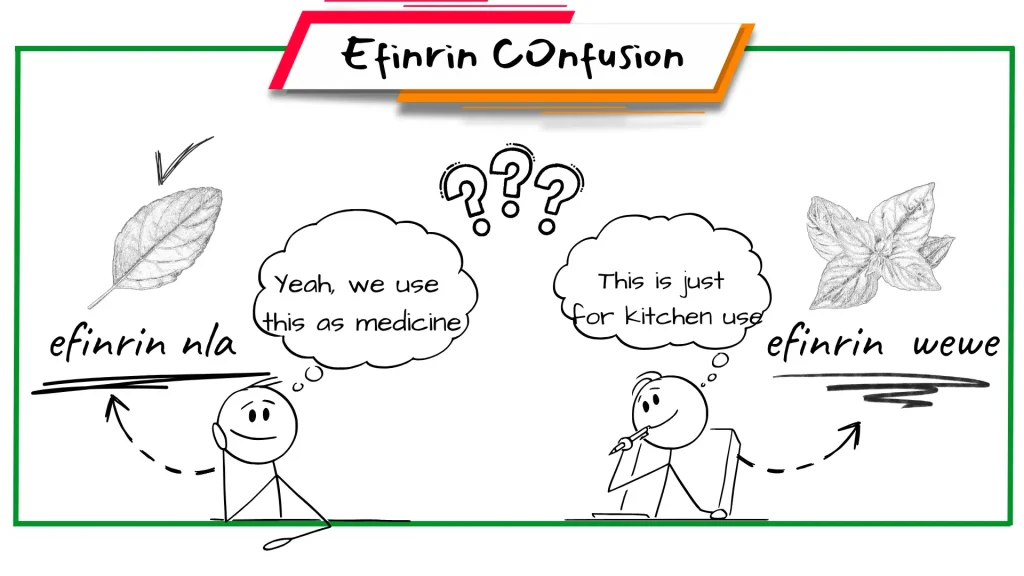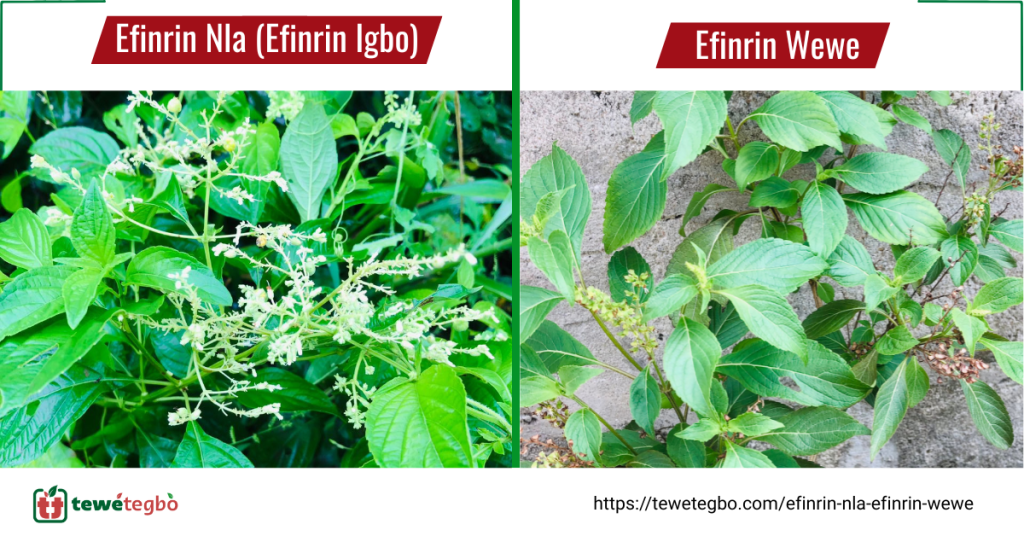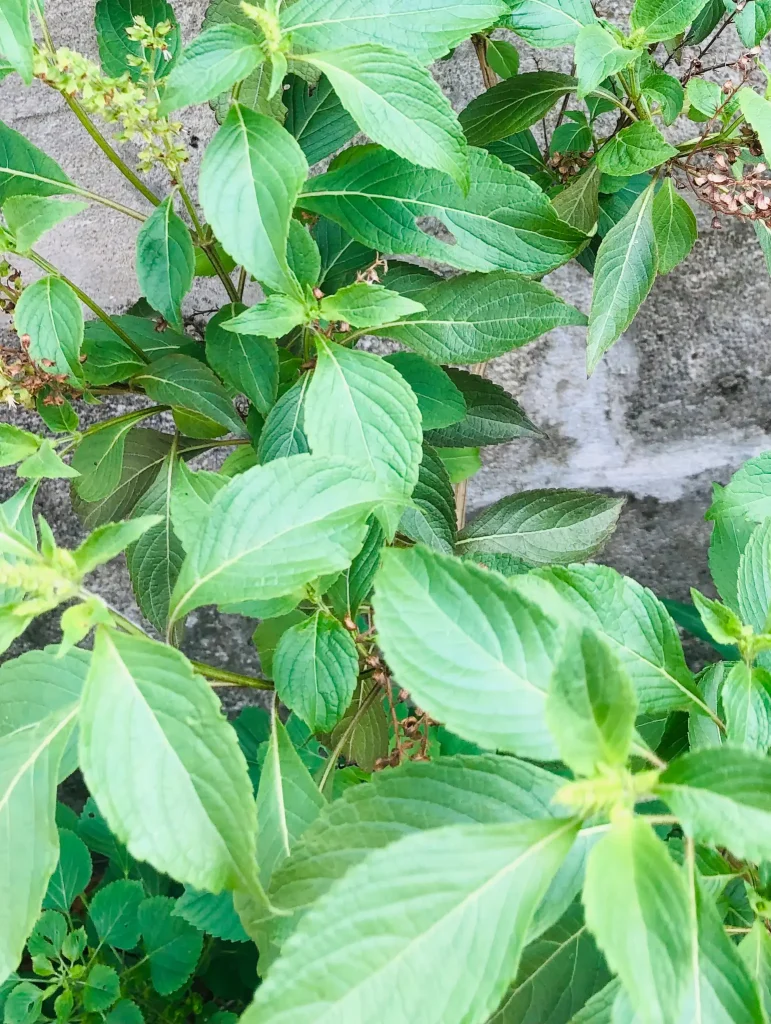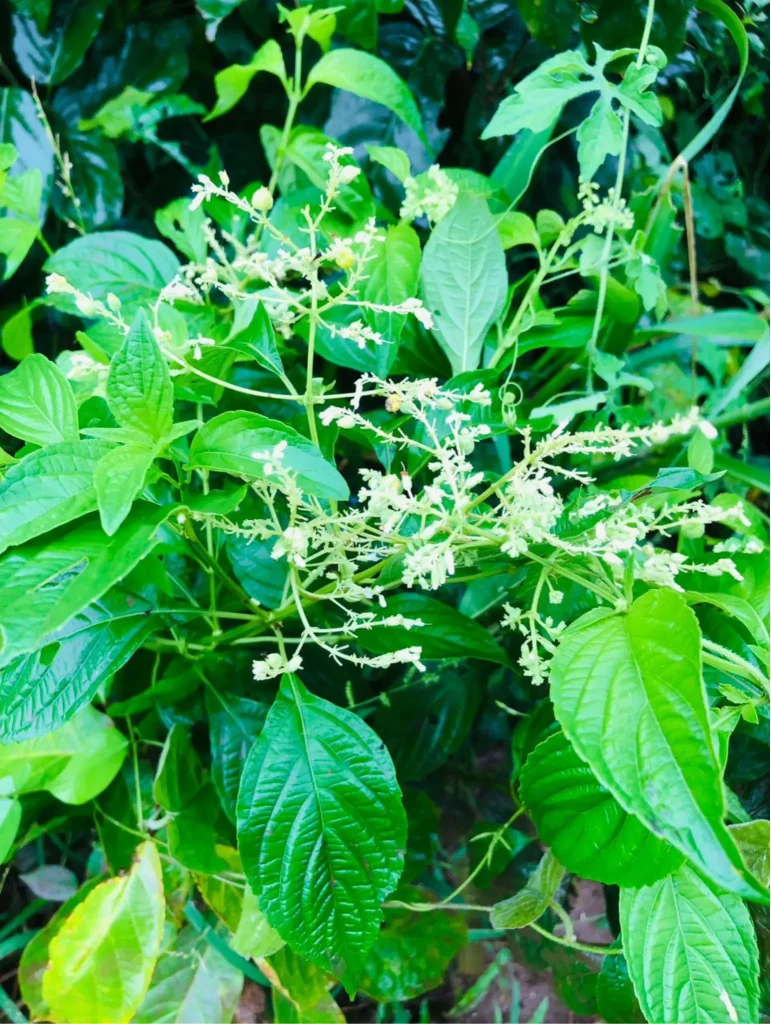Difference Between Efinrin Nla and Efinrin Wewe (Photos)
If you’ve ever used social media or google on searching for efinrin (scent leaf), chances are you’ve heard people argue about efinrin nla and efinrin wewe. Some say one is “stronger,” others say the small one is “for cooking” and the big one “for medicine.
Meanwhile some also wrongly take efinrin wewe as sweet basil. That is another level of confusion. Sweet basil is basically not indigenous to Nigeria especially the Yoruba region.
In short, most people are intentionally confused. They do not know which is which and end up in arguments.
So what’s the real truth? Let’s set the record straight…
There are types of efinrin beyond just efinrin nla and efinrin wewe. Besides those two, we also have efinrin oso and efinrin obuniru.
I will break down the differences between efinrin nla and efinrin wewe so your confusion will become clarity forever.

Quick Answer: Efinrin Nla vs Ewe Wewe
| Feature | Ewe Efinrin Nla | Ewe Efinrin Wewe |
|---|---|---|
| Leaf Shape | Leaves are thick, fleshy, and soft (succulent-like) and edges sometimes have a purple or reddish tint | Leaves are also fleshy but thicker and tougher than efinrin nla |
| Common Yoruba Uses | Traditionally used in treating typhoid fever | It’s the familiar scent leaf we add to soups, brew in teas, and use in countless home remedies |
| Growth Habit | Upright succulent, can reach 1m+, grows easily from fallen leaves through tiny baby plants growing along the sides | Bushy succulent, grows in clusters, prefers partial shade |
| Other Names | Efinrin Igbó | Efinrin |
Efinrin Nla and Ewe Wewe Pictures (Side by Side)

Why the Confusion Happens
With social media and internet mixing up plant names, the confusion between efinrin nla and efinrin wewe is growing, even creeping into a few academic references.
People can’t easily differentiate efinrin nla from efinrin wewe and are even now referring to a foreign plant (sweet basil) as efinrin wewe.
Meanwhile, confusing these two plants can:
Our Position at Tewe Tegbo


What’s Next from Us
Tewe Tegbo is launching:


